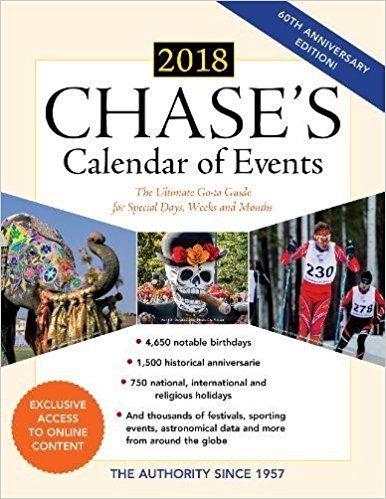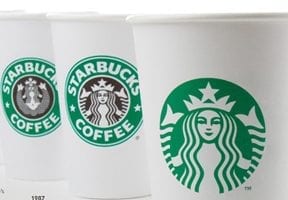A few years ago, I started to read a four-page flyer from the hip grocery chain Trader Joe’s and could not stop. I was astounded at its creativity. It promoted product after product with Thanksgiving-related riffs that ranged from calling its Brussels sprouts stalks “the Christmas Trees of Thanksgiving, which herald the start of the season” to touting gingerbread pancake mix as a perfect remedy for holiday stress, because ginger “is calming, relaxing and rejuvenating.”
This time of year, it’s easy to think about holiday tie-ins for your shoppers. But any month lends itself to seasonal promotions if you put your mind to it. Your payoff can be huge when you give yourself the imaginative leeway to go beyond the predictable.
As with Trader Joe’s Brussels sprouts and gingerbread pancake mix, seasonal copy gets consumers to sit up and pay attention to otherwise ordinary items. It gives people a reason — sometimes fanciful or fascinating, sometimes realistic and practical — to think right now about a product you’re hoping to sell.
So let’s get started with ideas for seasonal themes that go beyond the obvious.
Seasonal Theme Ideas
Holidays. You’re probably already incorporating annual holidays into your ecommerce operation. But these include way more than national days off, such as Christmas, Easter, Labor Day, and the Fourth of July.
A handy directory called Chase’s Calendar of Events lists, by date, thousands of lesser-known special days, weeks, and months, as well as historical anniversaries and one-time cultural events or milestones. You could, for example, invite shoppers to celebrate the anniversary of the European Union (November 1) by buying some Brie or Madeira, or Darwin Day (February 12) with a coffee mug bearing an evolution quote.

Chase’s annual Calendar of Events provides time-related things to celebrate every week of the year.
Other aspects of the seasons. The first day of spring, summer, autumn, and winter might be worthy of tie-ins, but think also about seasonal activities or weather-related ailments, such as spring cleaning, shoveling snow, or flu or sunburn season. If you sell organizing supplies, why not create a timely connection by telling shoppers that October is a good month for cleaning out and fixing up the garage?
School seasons. Even adults carry in their minds the rhythm of the school year. So a back-to-school promotion for professional books or language-learning apps makes perfect sense. Other school-related themes include a first report card and exam time, which could relate to stress-relief items.
Sports. This category includes both participant and spectator sports that take place seasonally, such as skiing, golf, croquet, baseball’s opening day, or the Olympics. You could declare selected running paraphernalia as helpful for the upcoming Iron Man competition even though you know most shoppers can only dream of participating in it.
Food. Even if you don’t sell food, you can highlight seasonal eating themes, such as specially treated clothing fabrics being impervious to cotton candy stains from the state fair or a camera being just the model to capture the detail on Uncle Fred’s holiday fruitcake.
Company milestones. The anniversary of your company’s founding creates an attention-getting and meaningful pretext for special offers. Likewise, you can mark a millionth-customer celebration by telling shoppers about your items that sell the best year after year.
And more. Opportunities for timely tie-ins are seemingly unlimited. Products for worriers could relate to the official start of hurricane season (June 1), the last day you can file taxes with an extension (October 15), or beating the rush to mail Christmas packages (December deadlines). A vintage clothing store could celebrate James Dean’s birthday (February 8).
Seasonal Communications
Beyond simple visuals on your website — such as beach paraphernalia in summer or snowflakes in winter — you can tickle shoppers’ fancies through a host of elements.
Email subject lines. Use seasonal memes or phrases in the subject lines of promotional emails. For instance, as Halloween looms, tell recipients about “Scary good new items this month.” In February, the subject line for a bookstore could be “Escapist reads for a snow day.”
Special offers. Tying timely deals to the calendar or the season gives your promotions a creative kick — especially when the connection is off-kilter or surprising. Call your sale the first week of September “Summer’s Last Stand” or dedicate your 20-percent-off bargain on classic films to Alfred Hitchcock’s birthday (August 13).
Shoppers’ guides. If you sell skin-care products, consider putting together a featured list of what you recommend to counteract winter’s harsh winds. If you sell flags, describe what to look for in flags in connection with the birthday of the U.S. Marine Corps, on November 10.

NationalDayCalendar.com highlights more than a thousand special days, weeks and months, including the U.S. Marine Corps birthday.
Social media. Not every post or communication with consumers needs to be along the lines of “Buy! Buy! Buy!” On Twitter, Facebook, or even your blog, simply letting people know, “February 17 is National Cabbage Day. Who has a cool cabbage recipe?” can get folks more involved with your company.
Direct mail. With or without a special offer, send engaging seasonal-theme postcards to your best customers to draw attention to certain categories. For instance, if you sell kitchen gadgets, right after Thanksgiving send a colorful recipe for turkey soup from leftovers — along with a special offer for a food processor.
The Unexpected
I once sat down with a photographer to concoct one seasonal promotion for each month of the year. It was great fun, and the program gave her prospects a monthly impetus to order something that they could otherwise have put off. This works less well when the seasonal themes are promotions that people have encountered countless times. Go for the unexpected.




